In Passing:
A Respected Voice for Rural Life

Robert Sopuck cherished hunting, fishing, conservation, and farming
By Paul Wait
Then a spry 4-year-old boy, Robert Sopuck began his “life outdoors” in 1955 when a northern pike snapped at the red-and-white Dardevle spoon he had flung into the Winnipeg River.
Sopuck’s formative childhood experiences in the Canadian outdoors led him to become an influential wildlife biologist, farmer, author, member of Canadian Parliament, and staff and board member of Delta Waterfowl. Sopuck, a respected voice and proponent of rural life, died Oct. 23 at his home in Lake Audy, Manitoba. He was 73 years old.
 Sopuck served Delta Waterfowl from 2000 to 2009 as vice president of policy in Canada, and then was elected in 2010 to Canada’s House of Commons representing the Dauphin-Swan River-Marquette area of Manitoba. He was re-elected in 2011 and 2015. He was the founding chair of the Conservative Hunting and Angling Caucus, and a member of the standing committees on Fisheries and Oceans, and Environment and Sustainable Development.
Sopuck served Delta Waterfowl from 2000 to 2009 as vice president of policy in Canada, and then was elected in 2010 to Canada’s House of Commons representing the Dauphin-Swan River-Marquette area of Manitoba. He was re-elected in 2011 and 2015. He was the founding chair of the Conservative Hunting and Angling Caucus, and a member of the standing committees on Fisheries and Oceans, and Environment and Sustainable Development.
Upon retiring from Parliament in 2019, Sopuck again offered expertise and service to Delta, this time as a Board member.
“Bob Sopuck had a long and impactful tenure with Delta Waterfowl as a staff member, volunteer, adviser, and Board member,” said Dr. Scott Petrie, Delta’s chief executive officer. “Conservation benefitted greatly from his training in both biology and politics. It was always extremely pleasing to be in Bob’s company, whether that be in a duck blind or board room, as he was always joyful and incredibly knowledgeable.”
He earned a bachelor’s degree in zoology at the University of Manitoba in 1972, followed by a master’s degree in fisheries management from Cornell University (New York) in 1975. Sopuck started his career as a district biologist in the eastern arctic for the Department of Fisheries and Oceans before buying a farmstead in western Manitoba.
Upon his return to the Canadian prairie, Sopuck met and married his wife, Caroline. He also became involved in politics. In 1988, incoming Manitoba Premier Gary Filmon recruited Sopuck to his executive council to advise on sustainable development. Sopuck played a pivotal role in developing provincial land and water strategies, as well as finding funding for conservation priorities.
“Bob lived the adage that those who don’t take an interest in politics would be ruled by those who do,” said Jonathan Scarth, former Delta Waterfowl executive vice president and Sopuck’s colleague and close friend.
Sopuck joined Delta Waterfowl’s staff to help advocate for hunters and landscape conservation. He traveled extensively, speaking to local Delta chapters across the country about how to communicate about hunting, advocate for policy reforms that promoted hunting, and promote landscape-scale conservation.
“Delta staff lovingly referred to this tour as ‘Bob’s Antiques Roadshow.’ It was a time when hunters were on our back foot in the face of animal rights advocacy, canceled bear hunts and long gun registries, and we needed Bob to push back,” Scarth said. “We refined our message of hunting for food with family and friends, and Bob charged into the mainstream media to fight the good fight.”
Sopuck’s “good fight” included writing a popular weekly newspaper column for the Winnipeg Free Press that he later compiled into his 2014 book, “A Life Outdoors: Essays on Hunting, Gathering, and Country Living in the 21st Century.”
“My column, which ran for eight years, was about the lifestyle of a hunter as opposed to a column about how to hunt,” Sopuck explained in the book’s preface. “I thought my way of life, alongside my wife, the inestimable Caroline, might be of interest to others. We live in a log house on 480 acres of land in the country south of Riding Mountain National Park in Manitoba. We are essentially self-sufficient in terms of food; we heat with wood and do our best to conserve and improve that slice of heaven we call ‘The Farm.’ Hunting, angling, fish and wildlife are an integral part of what we do and who we are. Eating wild food is a kind of communion for us, constantly reminding us about our connections with the natural world.”
John Devney, Delta’s chief policy officer, appreciated and admired Sopuck’s tenacity and ability to truly connect with people.
“I don’t think I’ve ever come across any fiercer advocate for the rural lifestyle than Bob Sopuck,” Devney said. “He believed so deeply in the intrinsic value of the rural way of life—hunting, fishing, farming, and the outdoors. Through his writings about rural life, particularly his columns in the Winnipeg Free Press, he reached an incredible number of people with a very impassioned message.”
In addition, Sopuck wrote about conservation for the National Post, The Hill Times, and other newspapers. He served on the boards of the Manitoba Habitat Heritage Corporation and the National Roundtable on the Environment and the Economy.
About the fish that started it all for a 4-year-old lad casting a lure near the family cottage, Sopuck describes the encounter in his book:
“I had been at it for ten minutes or so when the unthinkable happened. A four-pound northern pike, or jackfish as we called them back then, grabbed that old Dardevle and tried to drag it, with me attached, back to deeper water. I don’t recall exactly what happened, but I dug the butt of that rod into my stomach and hung on for dear life. It was me against the fish in a kind of ‘Young Man and the Sea’ saga, but I was determined not to let that fish get away. Pretty quickly I realized that I needed help, so I started yelling at the top of my voice. Obviously the adults presumed the worst, so they all came running. Dad quickly sized up the situation and ran up to me, grabbed the line, and hauled that old northern pike up on the rocks. I started to shake with excitement, and everyone was yelling stuff like, ‘Way to go Robert,’ ‘What a big jackfish,’ and ‘You got a nice fish!’ A number of pictures were taken, and through it all, my dad was beaming.
“I don’t recall what happened to that fish—I presume it became supper—but that first fish burned into me a desire to be outdoors, to conserve nature, to hunt, and to fish with a passion that has yet to diminish.
“The memory of that fish, and perhaps its spirit too, has always been with me. Maybe that’s why I’m such a passionate conservationist. I want as many kids as possible to experience what I have.”

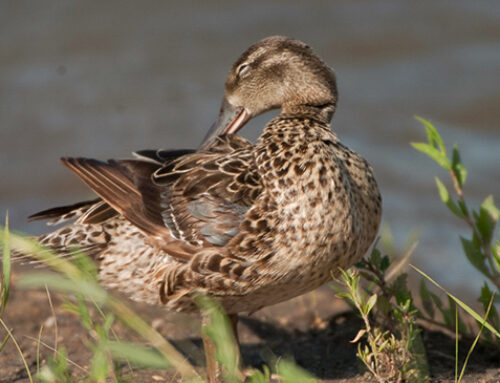
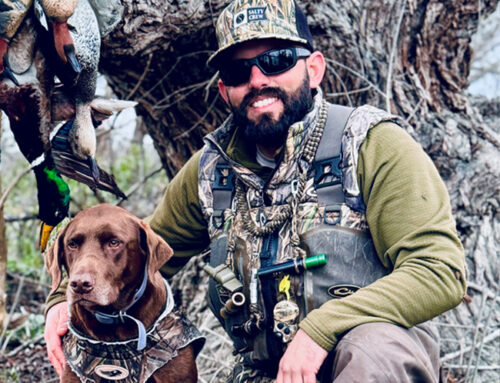
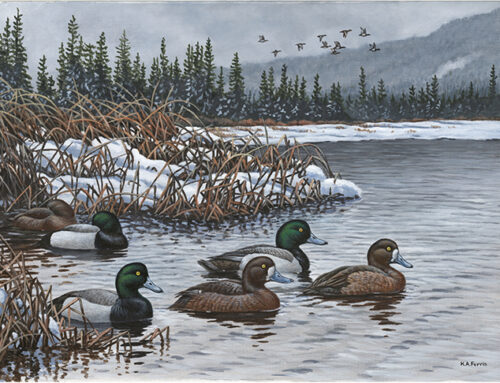
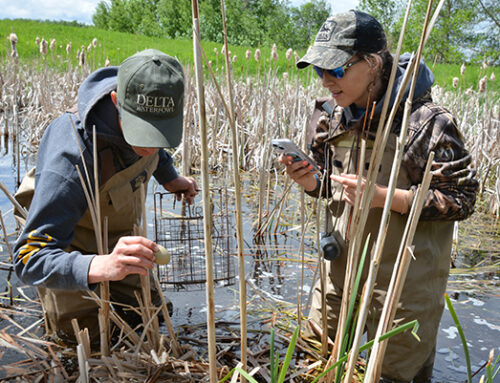
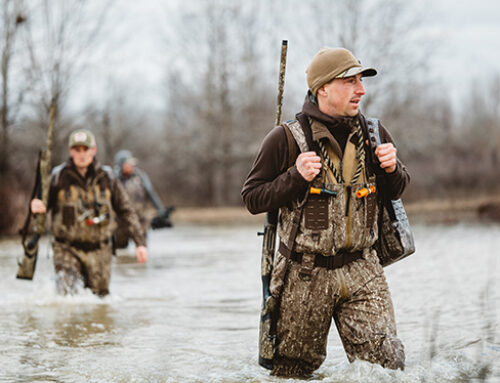
Leave A Comment